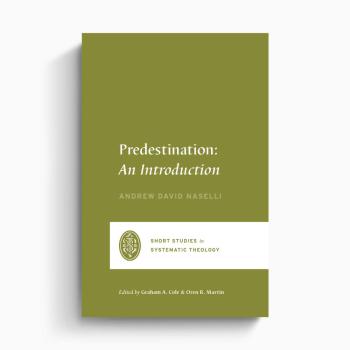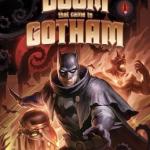Review of Lit!: A Christian Guide to Reading Books by Tony Reinke
By ALEXIS NEAL
Fact: I love to read. I like books. I even like books about books. So when I heard that there was a new book on the market, a Christian book about books and reading, I was pretty stoked. And when, upon further inquiry, I learned that the author, Tony Reinke, had worked as a research assistant for C.J. Mahaney (of Sovereign Grace) and now works for Desiring God (John Piper’s ministry), my little Reformed heart beat that much faster. Obviously, I had to read this book.
So I did.
And it was great.
Here’s the short version of my review: Read this book. If you love to read, read this book. If you hate to read, read this book. If you’re a Christian trying to think through how you can best glorify God in both how and what you read, read this book. If you think fiction has no redeeming value and confine your reading exclusively to a) your Bible, and b) reputable commentaries, then, well, I’m kind of surprised that you’re reading this blog, but still: Welcome to the blog! And read this book.

Now for the long(er) version.
Reinke covers pretty much all bases in this book. He starts off with a general theology of books—how we as people of the Word should view books in general (both the Bible and other books), the supremacy of language as a means of communicating truth, the effect of sin on our reading, and what it means to read with a biblical worldview (which may include not reading certain books, though Reinke is much less restrictive on this head than many evangelical authors). From there, Reinke extols the benefits of both non-Christian books and fiction/imaginative literature. The remainder of the book is devoted to practical advice—how to decide what to read, tips for reading nonfiction, ways to find time to read, suggestions on the use of highlighters/pens/etc., the benefits of reading with others, how to get kids/church members interested in reading, and so on.
 Tim Challies has already posted an excellent review/list of reasons to read this book. His post is insightful and absolutely dead-on (no surprise there), but I won’t re-hash the whole thing here. Instead, I want to focus on two particular aspects of reading that Reinke mentions but does not expound at length, both of which deal primarily with fiction (my own personal literary drug of choice).
Tim Challies has already posted an excellent review/list of reasons to read this book. His post is insightful and absolutely dead-on (no surprise there), but I won’t re-hash the whole thing here. Instead, I want to focus on two particular aspects of reading that Reinke mentions but does not expound at length, both of which deal primarily with fiction (my own personal literary drug of choice).
First of all, fiction is uniquely creative in a way that non-fiction simply is not. A good fiction writer does not just tell a story; he (or she) creates a world. When we engage in this activity of world-building, we reflect the image of God, who created our world. He made it up out of his own head (so to speak) and brought it into existence. Sure, we lack ability to make our ‘creations’ real (a theme explored in such films as Stranger Than Fiction, Bedtime Stories, and Ruby Sparks , as well as in a little-known Christian YA book by the name of The Experiment, part of Bill Myers’—of McGee and Me! fame—Bloodstone Chronicles. How’s that for a rabbit trail?). Our imaginations can be translated into words, but unlike the God in whose image we were made, those words lack the ability to transform reality. The best authors can re-create their worlds in the minds of their readers, and a talented filmmaker can render a visual representation of these worlds (as in Peter Jackson’s deservedly lauded Lord of the Rings trilogy or the occasionally uneven but always visually stunning Harry Potter films). Even though they can never be ‘real’, these imagined worlds can sometimes have a greater effect on individuals than the ‘real’ world because they work from the inside out. They are directly implanted from the mind of the writer into the mind of the reader or viewer, and it is from there that any real-world effects emanate. Thus, by writing fiction we have an opportunity to share—albeit in a very small way—in the creative work of our Creator God. By writing fiction, we can (dimly) reflect the image of our imaginative God, and by reading fiction, we can appreciate this God-like quality in others.
A second merit of fiction is that even these ‘made up’ stories can tell us true things. Reinke notes that “fictional literature may prove at times to be more true than nonfiction.” (p. 121) I wholeheartedly agree. Good fiction resonates with us because we feel it to be true. Something in the story calls to something in us, and we answer with a resounding ‘Yes!’ The best fiction is, at its heart, true fiction. It says true things about the human race–our nature, our plight, our desires, our hopes, etc. C.S. Lewis talks about the Christian faith as a ‘true myth’ that recurs across culture and time; I think it recurs across fiction as well. In John Eldredge’s popular defense of masculine Christianity, Wild at Heart, he argues that popular films, books, plays, etc. are popular because they reflect truth. While Christians disagree about the merits of Eldredge’s theological conclusions, this basic instinct is, I think, correct. We respond to stories of selfless sacrifice, stories of eternal love, stories of second chances, stories of good battling evil. Like Jonas in The Giver, we see in these stories glimpses of the reality behind the perceived world. Granted, it is important to remember which way the causal arrow points: as Christians, we don’t let man-made books or movies tell us what God is like; we see His character and His gospel in His Word, and we hold everything else up to that Word to determine if it is true. But the wonderful thing about this world is that despite the fall and sin and man’s best attempts to screw it all up, it does sometimes say true things about God, man, and the state of affairs between the two. The world—and the stories told by those living in it—cannot help saying true things. In The Last Battle, C.S. Lewis’s fictional account of the Apocalypse, a character (specifically, that quintessentially fictional character: the unicorn) describes Heaven as follows: “I have come home at last! This is my real country! I belong here. This is the land I have been looking for all my life, though I never knew it till now. The reason why we loved the old Narnia so much is because it sometimes looked a little like this.” I think it is the same with fiction. The reason we love good fiction is because in some small way it reflects something true about God, His creation (including us), or His gospel. As Christians, then, we can enjoy fiction as a child enjoys an Easter Egg hunt: it’s a pleasant way to spend a spring afternoon, and there’s a good chance you’ll find something sweet hidden amongst the rhododendrons. So to speak.

So anyway, that’s my take on Lit! and fiction, both of which you should totally read.













